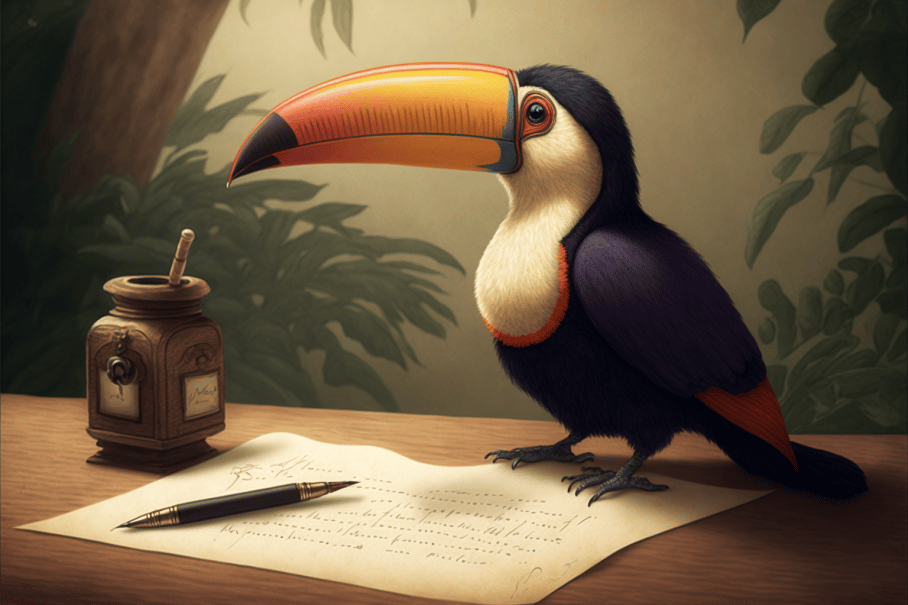Applying for a job consists of a few components, which you just gotta get right to even get a chance of an in-person interview. An appropriate portrait choice, and a well-written cover letter, is as important as a structured and impressive CV, which acts as the foundation of your application. Your future employer will definitely have a close look at the hard skills you mention in your application. The following article will help you understand what your hard skills are, how and where to put them in your CV as well as differentiate skill types in order to succeed in your application. Which hard skills to put on your resume or CV is really dependent on your personal profile, we will help you define what these skills are through lists, examples, and care skills to put on your CV or cover letter.
What are hard skills? Defining and understanding them
The definition of hard skills is our professional competence. This includes learned technical competencies or general skills (e.g. accounting). Generally, these skills are acquired by training, education, or practice and often can be proven by a certificate, degree, or some kind of frame of reference like languages. Hard skills are listed on your professional CV and should correspond to the requirements of the job you are applying for. The hard skills you put on your CV should point out that your acquired abilities make you a great fit for the job. We will cover some examples of hard skills in CVs, in the upcoming paragraphs.
What are good hard skills to put on a resume?
For example, when applying as an American citizen for a Senior Architect role in Rome, Italy, the employer will most likely consider candidates with a finished degree in Architecture, proficiency in, for example, AutoCAD and Revit, and fluency in Italian (all of these are hard skills). The mentioned core competencies are measurable and specific, whereas other requirements for the job might be excellent team leadership and communication skills, which are behavioral. These soft skills can be backed up by work experience and a stunning cover letter.
Hard skills CV examples
In order to give you an example of hard skills in a CV, it helps that we just defined that good hard skills are those skills that are required for the open position. So always check the job requirements section of the vacant position and align your own hard skills with those.
Some hard skills to put on a CV for an open web design role
DO’S
- UX & UI Design
- Figma, Sketch, Photoshop
- Illustration
- Typography
- HTML
DON’T’S
- Risk Management
- Accounting
Make sure to read the job posting carefully. Better to mention the required hard skills in your CV first and add further skill sets later on (for example, being prepared when being asked “What are your strengths?” during an interview).
The reason why it is necessary to include hard skills
Hard skills will match the requirements for open positions. Employers and recruiters are specifically looking for hard skills that are necessary to execute the job. Have at least a few of the required competencies on your CV to get considered as an applicant.
In every job, a set of hard skills is needed. Hard skills are defined as specific competencies. Having a great personality and rocking at decision-making are great but some job positions require an existing set of hard skills to succeed. Please consider that the necessity for particular hard skills also differs from trade to trade. Employment in engineering, health care, or construction is definitely more focused on a particular set of hard skills than other trades.
Step-by-step: How to include your hard skills on a CV
You found a job opening that sounds exciting but you feel like your application and especially your CV need some editing? Then check out the following tips for how and where to include your hard skills. With a little help, you will be able to properly list your hard skills to make a great first impression on your future employer.
1. The job requirements. Take a look at the job opening and find the necessary requirements section. Every job vacancy defines the required skills an applicant needs in order to fill the position. So identify skill-related keywords in the job description to know which hard skills to put on the CV. This might be a specific academic qualification or degree. But could also be a technical competence acquired over many years. Recruiters will search for potential candidates using specific hard skills keywords. Here are additional tips on how employers will find you.
2. Think before writing. Avoid copying and pasting your hard skills from your last application to a different company. We suggest writing a list of hard skills you found in the skills-related keyword search of the vacancy. Stating that you are a trained barista if you are applying for a data analysis role is definitely something you want to avoid.
3. Focus on your strengths. Highlight your hard skills in your work experience details. This helps the recruiter or employer to understand how you were able to use your hard skills in your professional life.
4. Attach acquired diplomas. In addition to pointing out how you succeeded with your hard skills in your professional career so far, we recommend adding job-related certificates, training confirmations or degrees to the application.
Common questions when including your hard skills in your CV
How many skills should I put on my CV?
“The more, the merrier” does not apply here. Quality over quantity is definitely the right way to go. If you catch yourself creating a list of hard skills, we recommend spending time reviewing and prioritizing them before sending your application off. For those of you, who need a numeric answer, about 10 skills in a bulleted list (in the “skills” section) are probably the maximum.
Should I include language proficiencies as a hard skill?
Some of you might have spent time abroad learning a different language or attending language classes in your home country. So it is natural that you want to point out your language skills in your CV. Proficiency in languages definitely has its space in the “skills” section of your CV. Check out how to include your language skills on your CV in order to set this up properly.
Where do I include hard skills on my CV?
You have two options. One of them is to list your hard skills in bullet points in your CV (please use its own heading for that, for example, “skills”). Another possibility is to state them within the description of a former work experience. Alternatively, if you choose to address your hard skills in your cover letter, make sure to pack them smoothly into the paragraphs.
Do algorithms decide if I get the job?
Yes, when applying to bigger corporations, it is very likely that an ATS (applicant tracking system) will go over your application. Recruiters as well as onboarding teams use this tool to scan and organize hundreds of CVs and cover letters. This way, it is possible to search for exact keywords and hard skills to find “the perfect match”. For this reason, setting your hard skills up properly is key for a successful application. We also highly recommend having a look at the hottest LinkedIn tip in 2021 to additionally improve your work image online.
Soft and hard skills: Is one more important than the other?
Employers look for hard skills when reviewing your application, so make sure you choose the right hard skills to put on your CV. Nonetheless, to succeed at the job, a set of soft skills is needed as well. Both types are essential when hunting for a job.
What are hard and soft skills?
At the beginning of this article, we already addressed the topic of “What are hard skills?”. They are occupational requirements that have been acquired via repetition or education. In addition, hard skills can be measured and clearly defined. Soft skills on the other hand are difficult to learn and are in contrast rather behavioral and related to your personality. Some skills are cut-clear either hard skills or soft skills, but let’s have a look at negotiating to show you that it is not always as obvious as we might think it is.
Is negotiation a hard or a soft skill? That is definitely a tough nut to crack. Whereas traditionally it is recognized as a soft skill due to its relation to a person’s emotional intelligence, Nick Dimitressis, founder and CEO of NDI Training & Consulting, dismantles the common narrative and suggests challenging the definition of both soft and hard skills.
Bottom line
There is no winner in this comparison. Both soft and hard skills are equally important and go hand in hand with each other. In the case of negotiating, Dimitris addresses a valid argument that some soft skills are actually more than that. Ultimately, the magic happens in knowing which hard skills to mention depending on the job you are applying for. Additionally, presenting a symbiosis of your existing soft and hard skills will not only impress but also point out to the future employer that you read and understood the open job position and would be a great fit.
Now that you know how to define your hard skills to put in your CV, try exploring how to convey your weaknesses and build your CV to perfection!


